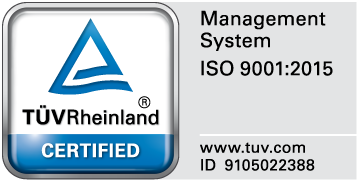-HFIP-treated-Peptide.jpg)
Beta-Amyloid (1-42) HFIP treated
Description
About Beta-Amyloid (1-42) HFIP treated
Synthetic peptide derived from the N-terminal region of human Amyloid beta A4 protein (Swiss-Prot ID: P05067). HFIP treatment is performed to disrupt beta-sheets and other unwanted secondary structures.
Beta-Amyloid (1-42) HFIP treated - Specifications
Amino Acid Sequence: DAEFRHDSGYEVHHQKLVFFAEDVGSNKGAIIGLMVGGVVIAProtein Name: Amyloid beta (A4) (alternative names: Abeta, Beta amyloid, APP)
Purity: >95% (HPLC-MS)
Delivery Format: Freeze-dried in plastic vial
Application(s):
Condition(s)/Topic(s): Alzheimer's disease
Standard Delivery Time: 2-5 days
Visit our webpage for more Peptide Tools to Study Alzheimer's Disease
Are you interested in your other Abeta Peptides? Choose your sequence, amount and purity. We will assist you along the way. Custom Peptide Synthesis.
JPT's Single Catalog Peptides
JPT Peptide Technologies has substantial, long-standing expertise in providing peptides, peptidomimetics, and proteins to the global scientific community. Our highly skilled and committed scientific staff ensures that the most appropriate methods and techniques are selected for every synthesis project. All of JPT's catalog peptides are provided with HPLC-MS analyses to confirm the identity and demonstrate the high quality of our peptides.
Benefits of JPT's Single Catalog Peptides
- Whole production performed in a regulated European environment according to DIN EN ISO 9001:2015 & GCLP standards; audits welcome!
- Synthesis protocols designed to avoid toxic contaminants and side products
- Provision of freeze dried aliquots for enhanced stability
- Proven track record for applications in clinical studies
References
References for Beta-Amyloid (1-42) HFIP treated
References:
Read References with Amyloid Beta A4 Peptides (abeta, aß)
Application Note
Synthetic Amyloid Beta Peptides Aid Alzheimer Investigation
Broersen et al., Application Note (2013) (full text)
Testimonial
“Our group focuses on the in vitro study of risk factors in Alzheimer’s disease and, as we experienced that the in-house expression and production of the amyloid beta peptide is notoriously difficult, we are continuously dependent on a high quality supply of a large variety of these peptides from commercial source. We started our collaboration with JPT with their request to test a range of their peptides for the ability to produce toxic oligomers and fibrillar networks and were impressed by the rapid supply of a very wide range of high purity peptides with excellent fibril forming properties and toxicity profiles. JPT has shown real valuable know-how and experience in the field of peptide synthesis by their ability to generate high quality preparations of amyloid beta peptide variants which are known for their difficulty to handle.”
Kerensa Broersen, Assistant Prof., Nanobiophysics Group, University of Twente, Enschede, The Netherlands
Documentation
Documentation for Beta-Amyloid (1-42) HFIP treated
Properties
Properties of Beta-Amyloid (1-42) HFIP treated
| Properties | Values |
|---|---|
| Category: | Abeta Peptides |
| Condition / Topic: | Alzheimer's disease |
| Layout: | Freeze-dried in plastic vial |
| Organism: | Human |
| Protein Name: | Amyloid beta (A4) protein |
| Purity: | >95% (HPLC-MS) |
| Quantification: | Yes |
Further Information to Beta-Amyloid (1-42) HFIP treated
| Information | Values |
|---|---|
| Sequence: | DAEFRHDSGYEVHHQKLVFFAEDVGSNKGAIIGLMVGGVVIA |
| Specifications: | Synthetic Beta-Amyloid peptide (1-42) |


Quality Assurance
All production is ISO 9001:2015 certified.

-HFIP-treated-Peptide.jpg)
-HFIP-treated-Peptide.jpg)
-HFIP-treated-Peptide.jpg)
-HFIP-treated-Peptide.jpg)
-HFIP-treated-Peptide.jpg)
-HFIP-treated-Peptide.jpg)
-HFIP-treated-Peptide.jpg)
-HFIP-treated-Peptide.jpg)
-HFIP-treated-Peptide.jpg)
-HFIP-treated-Peptide.jpg)
-HFIP-treated-Peptide.jpg)
-HFIP-treated-Peptide.jpg)
-HFIP-treated-Peptide.jpg)
-HFIP-treated-Peptide.jpg)
-HFIP-treated-Peptide.jpg)